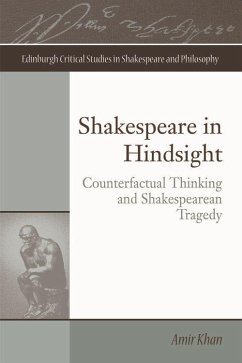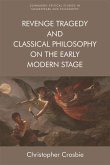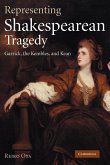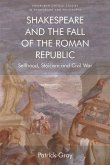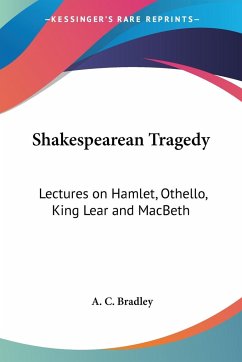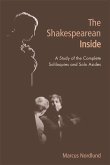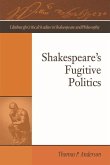Series Editor: Kevin Curran Edinburgh Critical Studies in Shakespeare and Philosophy takes seriously the speculative and world-making properties of Shakespeare's art. Maintaining a broad view of 'philosophy' that accommodates foundational questions of metaphysics, ethics, politics and aesthetics, the series also expands our understanding of philosophy to include the unique kinds of theoretical work carried out by performance and poetry itself. 'A splendidly original investigation of Shakespeare's most beloved tragedies. I applaud Khan for his courage and ambition in offering the reader a way of experiencing these familiar plays as if for the first time by re-examining the basic premises of character and action. For readers of his book, Hamlet, Macbeth, Lear, and Othello will never be the same.' Gail Kern Paster, Folger Shakespeare Library This bold new study uses counterfactual thinking to enable us to feel, rather than explain, Shakespeare's tragedies What to do with William Shakespeare? As figurehead for the English language, he looms large. We know he matters but we cannot pinpoint precisely why he matters. Lacking reasons why, we do our best to involve him in others, or involve others in him. Shakespeare has been branded many times over - as Catholic, Protestant, Marxist, Materialist, Psychoanalytic, Feminist, Postcolonial, Popular, Cultural and Popular-Cultural. Must we go on? Perhaps, if only because whatever these approaches say about tragedy in particular, none of them help us to feel tragedy. By virtue of 'explaining' tragedy (Shakespearean or otherwise), they all wind up explaining tragedy away. Rather than heightening its horrors, they palliate our perception. The aim of counterfactual criticism is to reanimate the tragic effect, long since lost in some deluge of explanation. Key Features - Provides a novel methodology designed to make Shakespeare and his tragedies more approachable to students and scholars alike - Provides a way beyond historicist methods in Shakespearean scholarship - Introduces the promise of, while modelling ways to exercise, counterfactual thinking in literary studies Amir Khan completed his doctoral dissertation at the University of Ottawa in June 2013. He has published articles in Popular Music and Society, Cineaction: Canada's Leading Film Studies Journal and Shakespeare Quarterly. He is also the managing editor of Conversations: The Journal of Cavellian Studies, an Open Journal Systems (OJS) publication dedicated to the writings of Stanley Cavell. Cover images: Rodin's Thinker (c) Wesley VanDinter/iStockphoto.com and William Shakespeare's Signature (c) JonNaust/iStockphoto.com Cover design: Stuart Dalziel [EUP logo] www.euppublishing.com ISBN 978-1-4744-0945-2 Barcode

